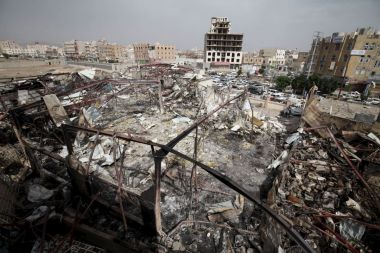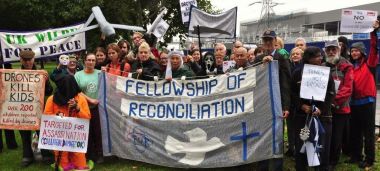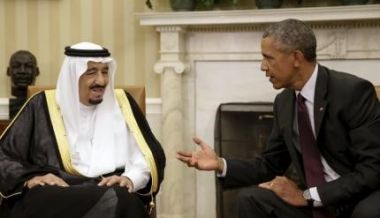The 'forgotten' war in Yemen and how the West is fuelling it

There's a war. Thousands are dead. Millions at risk of hunger. Allegations of atrocities committed by rebels and coalition forces. But this isn't Syria, Iraq or South Sudan. In fact, you may not even be aware there's a conflict going on there. It's Yemen.
Among the seemingly never-ending bad headlines coming out of the Middle East, it may not be a surprise that a brutal and spiralling conflict is passing unnoticed. But Yemen is a tragedy that should demand more of our attention. According to Oxfam, 21 million Yemenis – an astonishing 84 per cent of the population – urgently need humanitarian aid.
The current crisis in the small state in the Arabian Peninsula began in 2011 (although its roots go back much further). Yemen was one of a number of Gulf countries that saw uprisings as part of the Arab Spring. But unlike in Egypt and Tunisia, where the regimes came tumbling down, Gulf States such as Bahrain and Yemen endured the uprisings rumbling on without resolution.
Rebel forces known as the Houthis (after their founding leader) come from the North of Yemen. They are from a branch of Shia Islam which is a minority faith in Yemen and the wider Middle East. The Houthis battled the Yemeni government from 2004 to 2010, and then when wider protest broke out as part of the Arab Spring in 2011 the Houthis joined those. Since then the country has effectively been in a state of civil war.
But this has intensified over the last year to the point that Oxfam is now describing the situation as, "among the worst humanitarian crises in the world." The latest round of violence saw a church in Aden set on fire.
Opposing the Shia rebels is President Hadi and his forces – he is a Sunni and has the backing of surrounding Sunni states – led by the military might of Saudi Arabia. And this is why we should be taking a special interest. Because despite its authoritarian government, horrendous human rights record, links to terrorist organisations and treatment of women and other minorities, Saudi Arabia is our ally and largest trading partner in the Middle East.
Middle East Eye reports on the drastic human consequences of this war. It describes the aftermath of a cluster bomb attack, "The children were aged between eight and 13. They were losing blood fast and were immediately rushed to the state-run Republican hospital, where Yehyia Al Hadi, an orthopaedic doctor, said the three children were in a critical condition and might not survive."
The dreadful news from Yemen of the awful consequences of this war are finally beginning to seep into western consciousness. Newsnight has run two harrowing but vital films in recent weeks which are essential viewing to get an idea of just how bad things are right now. The Guardian has condemned Saudi Arabia's actions in arming and acting with President Hadi in the brutal assaults on Houthi-held territory. A bombing campaign now beyond its sixth month is wreaking devastation in large parts of Yemen and leaving the resulting anarchic conditions ripe for exploitation by Al Qaeda and even ISIS. That Western-backed military action seems to be aiding the spread of those two groups is not the only grim irony here. In the week that the world finally begins to pay attention to the awful situation, here in the UK we are selling weapons to repressive regimes from the Middle East and beyond.

The DSEI arms fair takes place biannually in London and is one of the largest such events in the world. Christian groups have been among those protesting against this giant festival of torture equipment, weaponry and ammunition. This shameful event brings into focus our complicity in what's happening in Yemen and other conflicts around the world.
Astonishingly, flags in London were flown at half-mast when the authoritarian ruler of Saudi Arabia died last year. His country regularly beheads people. The US is even more of a 'friend' to the draconian regime. This is the reality of war: we may not be directly involved but we facilitate it, through our silence, through our arms sales and through our acceptance of vile regimes in the name of realpolitik.
Of course there are two sides to every story. And at least two sides to every war. It would be foolish to think of the Houthis as innocent freedom fighters. There is evidence of their side carrying out human rights abuses. They may well be supported by the Iranian regime – which itself is implacably opposed to Saudi dominance of the region – and has its own dreadful human rights record.
But it's the Saudis who are our allies and friends. It is they (and the other authoritarian Sunni states such as Egypt, Morocco, Jordan, Sudan, Kuwait, the United Arab Emirates, Qatar and Bahrain) who are being given intelligence support by the US military.
Oxfam says, "Before the conflict escalated in March 2015, Yemen was already wracked with poverty and insecurity and struggling in a transition to a better future. More than 10 million people were already going hungry every day." In other words, this is a vast crisis.

Oxfam has acknowledged the £55 million of UK aid that has been given to help ease the situation but questions why we are still supplying the Saudis with arms: "Between January and March this year, the UK approved two orders for bombs or missiles for Saudi Arabia, valued at £17.19m... Since then, the Ministry of Defence has told Parliament that the UK has continued to supply 'precision guided weapons' to Saudi Arabia under its existing arrangements... The government has also confirmed that the UK is continuing its support and maintenance for UK-supplied equipment, with MoD military and civilian personnel, as well as BAE Systems personnel stationed in Saudi Arabia to support the Royal Saudi Air Force."
This epic crisis in Yemen has deep ethnic, religious and economic roots. There are no 'good guys.' But this conflict must be highlighted. Our role in its escalation cannot be ignored. The lives of millions of people are being damaged by the war with little hope of resolution. It's time the crisis in Yemen was no longer a 'forgotten war.' It's time this made the headlines. It's time for an immediate end to the bombing and a start to talks.











